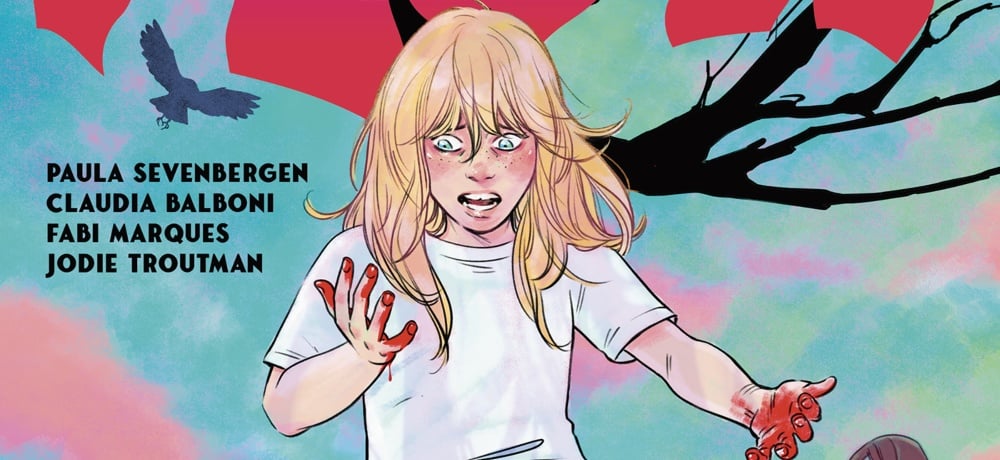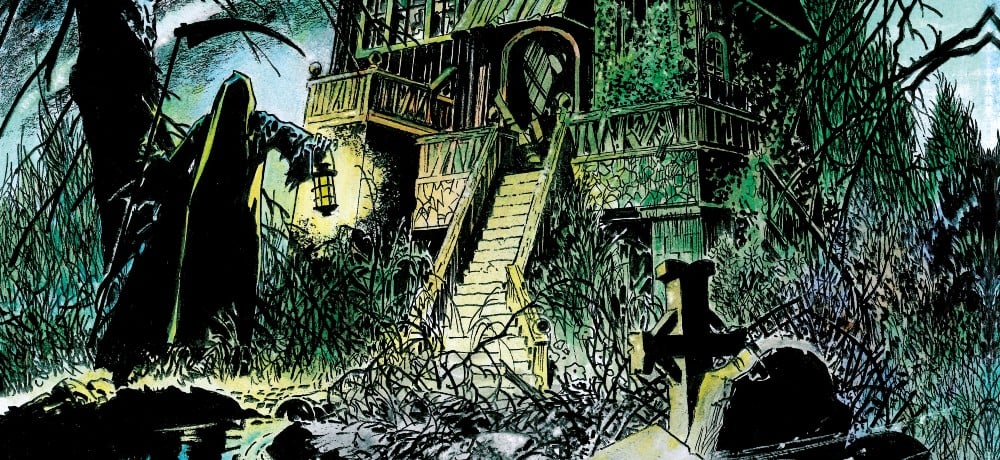





It has been a long journey in getting Jonas Åkerlund’s Lords of Chaos not only made, but onto the big screen this month in New York and Los Angeles (as well as some other select cities), with a VOD rollout happening as well on February 22nd. Based on “truth and lies,” Lords dives into the world of Norwegian black metal band Mayhem, and the events leading up to (and surrounding) the shocking death of its co-founder, Euronymous, who is played by Rory Culkin in the film. Daily Dead had the chance to speak with Culkin earlier this week, and he talked about what drew him into the project, taking on a character that’s based on this real-life personality, and more.
This is a story that takes place over 20 years ago, and yet there are so many parallels between Oystein and the things he does as Euronymous and what this guy tried to create back then with the black metal scene, versus what some people do these days with social media. I'm curious, was that conscientious to you at all as you were looking at this project and thinking about taking on this person's life?
Rory Culkin: That's interesting, because I hadn't considered that. I mean, these guys were great at promoting themselves and capturing images of themselves before we all had camera phones.
Yeah, absolutely, and he built this movement essentially out of nothing, which is really fascinating.
Rory Culkin: I know, it is pretty impressive. Nowadays, there are thousands of different subcultures that you can get access to online. But I don't know, I didn't really think about the parallels of today at all, actually. I was pretty focused on those times of this story.
So, what was it that initially drew you in and made you realize you really needed to be in this world and transform yourself into this guy who people knew in reality?
Rory Culkin: Well, when I was given the script, it had an image of Euronymous in corpse paint on the first page, so that immediately drew me in, just the imagery of that. And then, as I got further into the script, I realized I had heard about this story before. I had been attached to it for years because I didn't know when it was gonna be financed and when it was gonna be made, so I had a lot of time to study these guys and by the time it came to shooting everything, it all just felt like second nature. I didn't really have to think about it, because it was all there.
When you talk about immersing yourself in the culture and in the world and what these guys went through, can you talk about that process? Is there a different weight that you carry with you with something like this versus taking on a fictional role, and does that change your approach to the character because it's more than just a character?
Rory Culkin: I guess the difference between playing a fictitious character and someone who really existed is that I have a foundation already there. I have photographs to look at, I have interviews to read, so selfishly, it's helpful in that way, but with that comes the weight of the reality that he was a young man who was murdered and he's a legend to a lot of people, but to his family he was a kid and he was their kid, so there is a responsibility there. I have to take it very seriously and it's not a joke.
But I had the benefit of looking at all these photos. They were great at documenting everything, so I had the benefit of seeing all these different versions of him and watching him grow up in photographs. Unfortunately, there's only one audio interview with him and he's speaking Norwegian, but he's putting on a voice, at least, it seems like that to me, where he's trying to sound scary, he's trying to sound spooky, and that was kind of revealing to me, too, is that he was, in my opinion, playing a character, and that was important to show that.
That's totally interesting to me, and something I was gonna talk about is, in a way you're almost playing two characters in this film, because you're playing this guy that still goes home, still has spaghetti bolognese with his family, but then he's out there basically inciting people to set out on these destructive paths and I just think that's such a fascinating dynamic, especially because at the end of the day he was a kid. But there's a really interesting point when he realizes, or at least in the film he does, that this has gotten bigger than him, and it's really an intense thing, and you can feel him realize, “What have I done?” I just think it's really interesting that there are almost these two characters at play within the one character.
Rory Culkin: Well, thank you. I think that's interesting, too. Talking to people in that scene, I got to speak to people that were hanging around Euronymous and then I got to speak to some people, Swedish, who were in Swedish bands at the time, and talking to the Swedish fellas, they were sort of afraid of Euronymous, because he would send them letters threatening their lives, saying, "If you tour here in Norway, we will kill you." Yeah, he was just throwing death threats around.
And I'm sure he told all of his friends that he did that, and I'm sure he made sure that everyone knew that he was sending these letters. Then you talk to people in Norway who were in the room with him, and they all say, yeah, he was a decent guy, he was pretty funny. And that was the big question for me, was, "How would he react if I walked into one of his parties and I tried to shake his hand?" That was always my question early on, and they would always say, "I'm sure he would shake your hand and tell a fart joke, because he was a silly guy."
It's this weird balance. If you ask me, he was definitely playing a character, and that's not to excuse his actions, because he did a lot of terrible things or preached a lot of terrible things, and that's not okay, but I think it's about finding the line between theater and reality.
I don't think it's really a spoiler because he died in real life. The scene with you and Emory [Cohen], it's so hard to watch but I like that it's deliberate in its nature and it should be hard to watch, because it's not glorifying what happened that night between those two. I was wondering if you could talk about going through that murder scene, because there's so much emotional weight to it and it is a really, really rough thing to endure as a viewer.
Rory Culkin: Thank you. We shot that near the end, so that was always looming over me, the fact that I was gonna have to die soon [laughter]. We rehearsed it the day before and one of our 18 days of shooting was spent just on that scene. Emory just came in with all this energy and I had formed a strong bond with Emory at that point, and we had the same belief that the friendlier you are and the better you know each other, the harder you can go at each other when it comes to scenes like that, so he knew he had my full permission to go after me.
What's interesting about that crime scene was that it started in Euronymous' apartment and ended in the stairwell, just like we show in the movie, and all we have is Varg's word on what happened and their discussions and how it all went down, but they definitely talked to each other throughout this murder, and it wasn't isolated to a corner, and it didn't take ten seconds, it was a long, drawn-out, brutal murder. Like we were talking about earlier, there's a responsibility to try to make it as authentic as possible, and I wouldn't do this movie if that was part of a montage and we put cool music over it. That's not what we were trying to do here. We're trying to tell a story and we're not trying to make these guys look cool in these horrific moments.
---------
In case you missed it, check here to read Heather's Sundance review of Lords of Chaos and her interview with the director and cast!